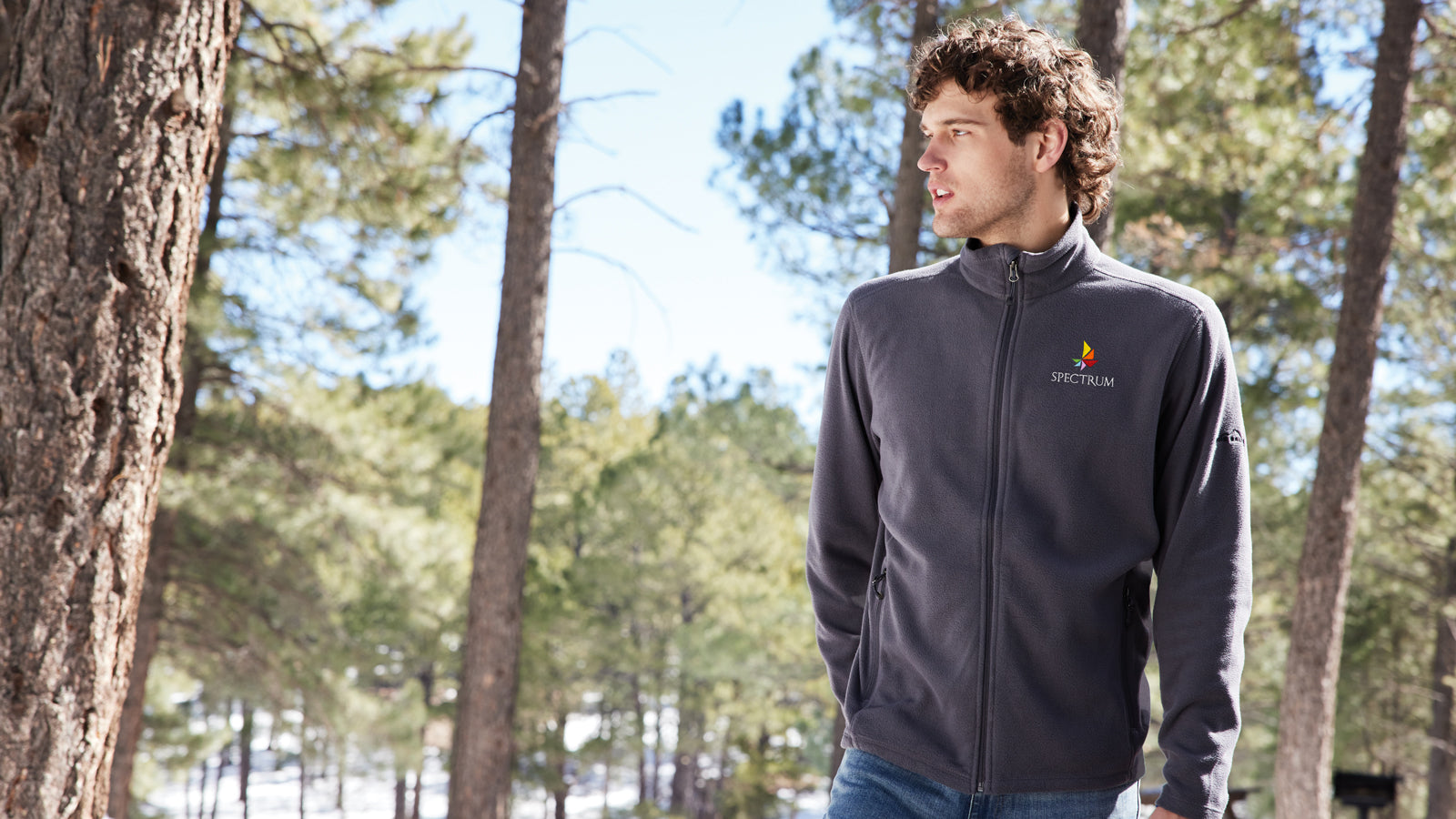According to data gathered by the BBC, humans generate about 92 million tons of textile waste yearly. Since most of this waste is not biodegradable, we have dump sites filled with clothes that will remain there for decades, causing damage to the environment.
How can we reduce textile waste? By switching to clothing made with sustainable fabric.
What Is Sustainable Fabric?
A sustainable or eco-friendly fabric is any textile made with organic materials like cotton or bamboo or recycled products like reused polyester or plastics. These sustainable fabrics are better for the environment because manufacturing them requires less water and generates less harmful waste. The disposal of organic fabrics also has a low environmental impact because the waste is typically biodegradable.
How Is Sustainable Fabric Made?
Several types of sustainable fabrics are available, and each one has a unique manufacturing process. For example, organic cotton comes from the cotton plant, and manufacturers turn the harvested cotton into threads, which they weave into fabrics.
Natural wool fabrics come from animals like sheep and camels. Harvesters shear the wool fleece from the animal before combing and spinning it into yarn. The yarn then gets woven into wool fabric on a loom.
Recycled fabrics come from cleaning and processing non-biodegradable waste and converting them into useable fabrics. Many recycled fabric manufacturers make products from reclaimed plastic, polyester, and nylon waste.
Types of Sustainable Fabric
Several types of eco-friendly fabric are available, and below are some of the most popular ones:
- Organic Cotton: Natural cotton fabric is arguably the most eco-friendly fabric. The fabric is famous for its breathability and soft texture. Fashion brands use it to make everything from tops and dresses to underwear.
- Hemp Fabric: The hemp plant isn’t just for smoking and making edibles. Clothing manufacturers turn the plant stalk into fibers and spin the fibers into threads. Producers can then weave the threads into hemp fabric. Besides being highly sustainable, hemp fabric is good for the skin, thanks to its sun protection and anti-microbial properties.
- Linen: Organic linen is an eco-friendly fabric made from the flax plant. The fabric is just as sustainable as hemp fabric but lighter and more breathable.
- Wool: Various types of natural wool are available, including sheep, alpaca, camel, yak, cashmere, and merino wool. These wools are all excellent eco-friendly alternatives to fabrics like polyester and nylon.
- Cork: The fabric comes from bark shaved from cork oak trees. The harvesting process is eco-friendly because it doesn’t generate waste. The process also makes cork oak trees consume more carbon dioxide.
- Peace Silk: Silk made from domesticated or wild silkworms is 100% eco-friendly, and the fabric’s texture is one of the softest.
- Econyl: Econyl or recycled nylon takes non-biodegradable nylon out of dumpsites and the ocean and turns it into an attractive fabric. The water-resistant fabric is excellent for swimwear and clothing for wet weather.
- Recycled Polyester: Polyester is one of the most commonly used fabrics. Sadly, it is non-biodegradable and environmentally unfriendly. Recycled polyester reduces non-biodegradable waste by reusing disposed of polyester fabrics. The end result is a versatile, stretchy, and lightweight fabric for activewear and other apparel.
- Lyocell and Modal: Lyocell comes from the pulp of eucalyptus trees, while modal comes from beech trees. Both materials are versatile semi-synthetic fabrics that have pleasant textures.
- Pinatex: Pinatex is a leather substitute made from pineapple leaves. Turning the pineapple leaves into fabric is an eco-friendly alternative to burning the leaves.
- Qmonos: Qmonos is a Japanese fabric made from synthetic spider silk. The silk is highly durable yet super soft and lightweight. Even better, the fabric is 100% biodegradable.
- Down: Down apparel uses duck and geese feathers to improve insulation. Besides being sustainable, down clothing is typically lighter and offers better insulation than coats made with synthetic materials.
How Is It Used?
Fashion brands use various eco-friendly fabric types for different products. For example, you can find dresses, tops, suits, and more made with organic cotton, linen, silk, or hemp fabric. Down and wool are popular choices for winter clothing, while lyocell, modal, and recycled polyester are not uncommon in the sportswear industry.
Some brands also blend different sustainable materials to make them more durable or comfortable. For instance, some brands blend cotton with recycled polyester to improve the fabric’s durability and stretchiness. Other manufacturers blend wool with other fabrics to make it less itchy and prevent pilling.
Is Sustainable Fabric Right for Embroidery?
The correct answer to this question will depend on the sustainable fabric you choose for embroidery. For instance, lyocell, modal, and similar light eco-friendly fabrics are unideal for embroidery.
On the other hand, fabrics like natural cotton, wool, hemp, and recycled polyester are excellent choices for embroidery. These materials have dense weaves that won’t rip during the stitching process.
If you want the best sustainable fabric for embroidery, don’t just go for one that’s dense enough to hold your embroidery stitching. The material should also have good shape retention. Otherwise, your embroidery will become misshapen if the fabric shrinks or loses its elasticity.
Our Favorite Sustainable Apparel at Thread Logic
Below are our top picks for sustainable apparel that carry embroidery beautifully:
North Face Sweater Fleece Vest

The North Face Sweater Fleece Vest makes a superb choice for layering in winter. The vest’s recycled polyester material has a brushed fleece interior that feels soft and wicks moisture. We can embroider your brand name and logo on the breast or the back, and you can get the vest in black, grey, or navy blue.
Adidas Sports Shirt

The Adidas Ladies Sports T-Shirt features 100% recycled polyester piqué. The material has a pleasant texture and wicks moisture. The shirt also has a figure-flattering curved hem and narrowed waist. Since the shirt pairs well with shorts, leggings, and long jeans, wearers won’t have trouble finding bottoms that match.
Adidas Quarter-Zip

The Adidas Quarter-Zip is a stylish and comfortable long-sleeve pullover. Its material is a blend of organic cotton and recycled polyester French terry for maximum breathability and durability.
Champion Eco-Fleece Quarter-Zip

The Champion Eco-Fleece is a long sleeve turtleneck pullover with a quarter zip on the front for controlling ventilation beneath the outfit. The fabric is a blend of cotton and recycled polyester, and you can get it in black, light steel, or navy blue.
Clique Ice Long Sleeve Tee

The Clique Ice Long Sleeve Tee is a sweatshirt made with 100% polyester mesh that will not run or lose shape. Even though it is a slim-fit shirt, the Clique Ice provides superb comfort and unrestricted movement.
North Face Every Day Insulated Jacket

Matching North Face Every Day Insulated Jackets for your entire team is an excellent idea for winter. The jacket features a recycled polyester taffeta shell and lining that repels water and cold winds. You can get it in olive green, black, or blue, and sizes range from small to 3XL.
Switch to Sustainable Custom Clothing for Your Entire Team
At Thread Logic, we have over two decades of experience providing businesses and individuals custom embroidered apparel made with sustainable fabric. You can order for as few or as many custom apparel as you need, and we ship all over the U.S. To learn more about us and our custom embroidery services, contact us today to discuss your project and place an order.


